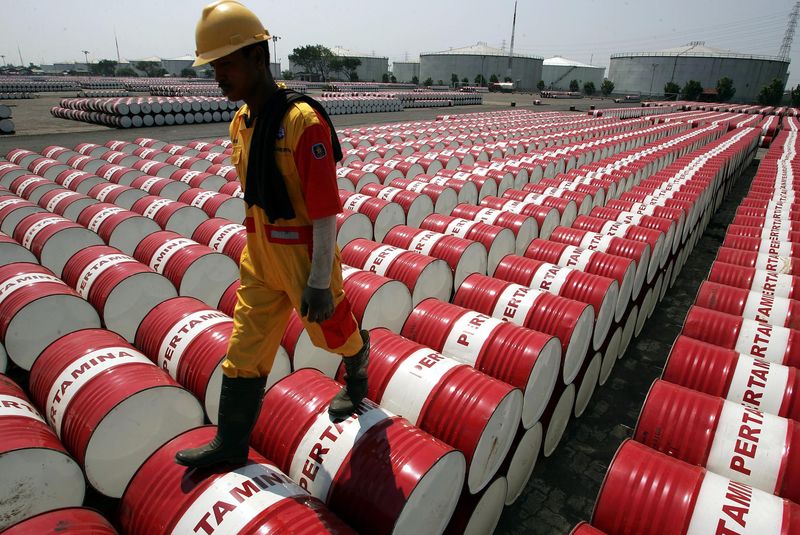Investing.com - Oil prices were under heavy selling pressure in North American trade on Wednesday, extending overnight losses after data showed that both oil and gasoline supplies in the U.S. rose last week.
Crude oil for October delivery on the New York Mercantile Exchange sank $1.04, or 2.16%, to trade at $47.06 a barrel by 10:35AM ET (14:35GMT). Prices were at around $47.50 prior to the release of the inventory data.
The U.S. Energy Information Administration said in its weekly report that crude oil inventories rose by 2.5 million barrels in the week ended August 19. Market analysts' expected a crude-stock drop of 0.5 million barrels, while the American Petroleum Institute late Tuesday reported a supply gain of 4.5 million barrels.
Supplies at Cushing, Oklahoma, the key delivery point for Nymex crude, increased by 375,000 barrels last week, the EIA said.
Total U.S. crude oil inventories stood at 523.6 million barrels as of last week, which the EIA considered to be “historically high levels for this time of year”.
The report also showed that gasoline inventories rose by 36,000 barrels, disappointing expectations for a 1.1-million-barrel decline.
For distillate inventories including diesel, the EIA reported an increase of 122,000 barrels.
Meanwhile, on the ICE Futures Exchange in London, Brent oil for October delivery declined 75 cents, or 1.5%, to trade at $49.21 a barrel after climbing 80 cents, or 1.63%, in the prior session.
Oil's gains on Tuesday followed a Reuters report that said Iran was sending positive signals that it may support joint action to prop up the oil market. Iran was unwilling to participate in a deal last spring to freeze production.
OPEC is set to hold an informal meeting to again discuss an output freeze late next month.
Over the past two weeks, crude prices soared almost $10 a barrel, or nearly 25%, amid speculation major oil producers, led by Saudi Arabia and Russia, are reconsidering a collective production freeze in an effort to boost the market.
However, analysts and traders remain skeptical the meeting would result in a coherent effort to reduce the global glut.
An attempt to jointly freeze production levels earlier this year failed after Saudi Arabia backed out over Iran's refusal to take part of the initiative, underscoring the difficulty for political rivals to forge consensus.
